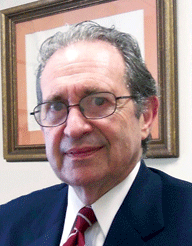After writing about the news that Delta Airlines was supporting Saudi Arabian Airlines’ partnership in the SkyTeam Alliance, I have been flooded with email messages — both in support of what I wrote and criticizing me for starting a false rumor.
I have been contacted directly by Delta Airlines and the Saudi Embassy in Washington. I have received messages from individuals wishing to petition or boycott Delta Airlines. I have also been scolded for picking on one airline when many airlines are part of similar agreements with discriminatory countries. This story certainly played to people’s emotions and it went viral quickly. In only a couple days my Huffington Post article has been “liked” over 7,500 times, I’ve been quoted in USA Today, and interviewed by CNN. I believe there is still a lot of misinformation going around concerning this partnership, but there have also been some clarifications since I posted my article. Rather than retracting what I wrote or removing that post entirely, I will attempt to clarify my views based upon all the information I currently have.
I first got wind of this story when a friend posted a link to the World Net Daily article titled “Delta adopts Saudi ‘no-Jew’ fly policy.” The article explained that Delta was adding Saudi Arabian Airlines to the SkyTeam Alliance and this would require the American carrier to ban Jews and holders of Israeli passports from boarding flights from New York or Washington bound for Jeddah. It also said that former U.S. Representative Fred Grandy (also formerly known as “Gopher” on “The Love Boat”) was presenting this matter to Congress.
Now, I am well aware that World Net Daily is a far-right, Conservative news website and I take its content with a grain of salt. However, it did publish two letters from Delta’s customer service coordinator which explained the company’s position. Further, I did my own research and read through Delta’s press release dated January 10, 2011, in which Delta offers its support of Saudi Arabian Airlines joining the SkyTeam Alliance. I also spoke with individuals who understand the function of the SkyTeam Alliance and they told me that Delta would be “code sharing” with Saudi Arabian Airlines. I was also curious about who owns Saudi Arabian Airlines so I contacted an authority in the airline industry who told me that it was owned and operated by the Kingdom of Saudi Arabia. Based on this information I posted the story to this blog and to the Huffington Post.
What follows are some corrections and explanations based on statements made by Delta Airlines and the Saudi Arabian Embassy after I posted my article:
1) TITLE: I based the title of my blog post on the World Net Daily’s article title (“Delta adopts Saudi ‘no-Jew’ fly policy”). This was a sensational title and was misleading. Delta did not adopt Saudi Arabia’s policy and Delta does not discriminate. In my article I clearly stated that Delta does not discriminate, but that my concern was that Delta was supporting membership in the SkyTeam Alliance by an airline run by a discriminatory country.
2) DOES IT MATTER?: I’ve had numerous people ask me if this even matters since most Jews are not planning on traveling to Saudi Arabia anyway. “I guess we’re not flying Delta to Riyadh for Passover” was a common cynical comment I received. While it is certainly true that Jewish men and women tend to fly to Miami, Aspen, Palm Springs or Israel for Hajj and not to Mecca and Medina, it’s still the principle that Saudi Arabia does not issue visas to Jews, Israelis or individuals with an Israeli stamp on their passport. Again, like other Muslim countries that do not issue visas to Jews, there are exceptions and I stated that clearly. I also understand that King Abdullah is working to reform his country and make good on his public commitment to interreligious dialogue in Madrid, but that he’s having a difficult time in doing so.
3) WELL, OTHERS DO IT TOO!: I’ve never liked this defense. It sounds like something a fifth grader would claim when he gets into trouble. Even if other airlines and other airline alliances code-share and do business with Saudi Arabian Airlines, it doesn’t make it right that Delta is. I recognize that American businesses and the American government have alliances with the Kingdom of Saudi Arabia. I know that we have military bases there. I know that we get a lot of our oil from them. I have seen the video of our last American president walking hand-in-hand with their king and I have seen the video of our current American president bowing down in front of their king. The fact remains that the majority of the 9/11 terrorists were from Saudi Arabia and it is a nation that discriminates against women and non-Muslims.
4) SO WHY PICK ON DELTA?: I don’t have anything personal against Delta Airlines. However, it was Delta that was singled out in the World Net Daily article and Delta’s press release supporting Saudi Arabian Airlines joining the SkyTeam Alliance that I read. Further, as I mentioned in my post, I live in Detroit which has been a Delta hub ever since Delta bought Northwest Airlines. I fly Delta often because most of the flights in and out of Detroit are operated by Delta. So, it was disconcerting to me that the airline I use the most is welcoming Saudi Arabia’s national airline into the alliance it founded.
5) CODE-SHARING: When I wrote the original article, I was informed that Delta’s alliance with Saudi Arabian Airlines would include a code-sharing agreement. It was explained to me by those in the industry that this would mean that a traveler could book a flight to Saudi Arabia on a Saudi Arabian Airlines flight through Delta. I even surmised that this could also mean that travelers would be awarded SkyMiles from Delta for their travel to Saudi Arabia. I never suspected that Delta would refuse travel to a Jewish person or an Israeli national. However, this alliance did not sit well with me because it was Delta getting too close to the airline of a discriminatory country. Based on Delta’s most recent press release about this matter, it appears that there is no code-sharing agreement with Saudi Arabian Airlines.
6) DELTA’S RESPONSE: Delta seemed to backpedal on this alliance after the public outcry. Delta’s customer service coordinator Kathy Johnston’s response seemed to pass the buck: “While we fully understand and sympathize with your concerns, Delta has no control over the actions of the United States or any foreign country. If the government of Saudi Arabia engages in discriminatory practices in the issuance of travel documents to U.S. citizens, this is a matter which must be addressed with a local embassy as appropriate or with the U.S. State Department.” Only after this controversy went viral did Delta issue a stronger statement fully explaining the nature of its partnership with Saudi Arabian Airlines via the SkyTeam Alliance.
7) SAUDI ARABIAN EMBASSY RESPONSE: In short, I don’t buy it. The Saudi embassy claims that the “Rumors being circulated via the Internet regarding passenger flight restrictions on Saudi Arabian Airlines are completely false.” It is well known that one cannot get a visa to Saudi Arabia with a point of entry stamp from Tel Aviv on ones passport. This is discriminatory. If other countries have the same policy, that makes them wrong too, but it is not an excuse for Saudi Arabia to follow this practice. Saudi Arabia also does not allow non-Muslim religious articles in its country. They have discriminatory practices when it comes to women’s rights. All of these issues should have raised a red flag when Delta considered supporting Saudi Arabian Airlines admission to the SkyTeam Alliance (even if other airlines had followed suit with SkyTeam Alliance or any of the other airline alliances).
8) JUST GET A NEW PASSPORT: Many individuals have simply said that it’s not a big deal if Saudi Arabia refuses entry to its country with a passport showing a previous trip to Israel. “Just get a new passport,” they say. It’s the principle here. And if Israel is denying entry to those who’ve visited the Palestinian Authority (in violation of the 1995 Oslo II accord), then they should correct that policy as well).
The bottom line is that I didn’t pick on Delta maliciously. I am not happy that other airlines have partnership agreements with Saudi Arabian Airlines either. I wrote about Delta because they were the focus of an article I read and they were the Airline that posted a press release on the Web supporting Saudi Arabian Airlines’s admission to the SkyTeam Alliance (which Delta founded). While the title of my post was misleading and inaccurate, I still believe that Delta (and any other airline in the SkyTeam alliance) is making a mistake by becoming a partner with an airline run by the Kingdom of Saudi Arabia.
Perhaps the Anti-Defamation League’s Abraham Foxman’s letter to Delta sums it up best:
We understand that Delta, as any airline, is required to comply with the visa requirements of the destination country,” wrote Foxman in a letter to Delta CEO Richard H. Anderson. “However, Saudi Arabia’s past practice of banning travelers with an ‘Israel’ stamp in their passport from gaining entry into the country runs contrary to the spirit and intent of Delta’s non-discrimination policy.
While this practice affects all travelers who previously visited Israel, it has a disproportionate impact on Jewish passengers. Moreover, Saudi Arabia also bars anyone from bringing into Saudi Arabia religious ritual objects, including religious texts, from any faith other than Islam, effectively banning religiously observant Jews from entering the country.
We expect Delta, and any other American airline which flies to Riyadh or partners with an airline that flies there, to ensure that its passengers — whatever their faith — not be discriminated against, and that no American airline in any way enable, or facilitate this discrimination, whatever the regulations of Saudi Arabia.









